Select your language

Engaging with research can play an important role in helping you develop your own ideas and practice as an education professional. That’s why we’ve started Meddwl Mawr, a book and journal club designed to support you on your professional learning journey.
We’ll be publishing regular recommendations on this page covering a range of interesting topics, pointing you to some of the great content available on your free online library.
Make sure you sign up to our mailing list to hear about recommendations as soon as they’re published.
We’re keen to hear about any books or journal articles you’ve found interesting, enjoyable or useful on EBSCO. If you have a recommendation that you would like to share, then please
Your recommendations
June 2025
We are delighted to be able to provide free access to four of Dean’s bestselling books, through EBSCO, to our registrants. The books are all highly readable and combine humour, research, and real-world relevance and help to make neuroscience both understandable and entertaining.
The Idiot Brain: A Neuroscientist Explains What Your Head Is Really Up To
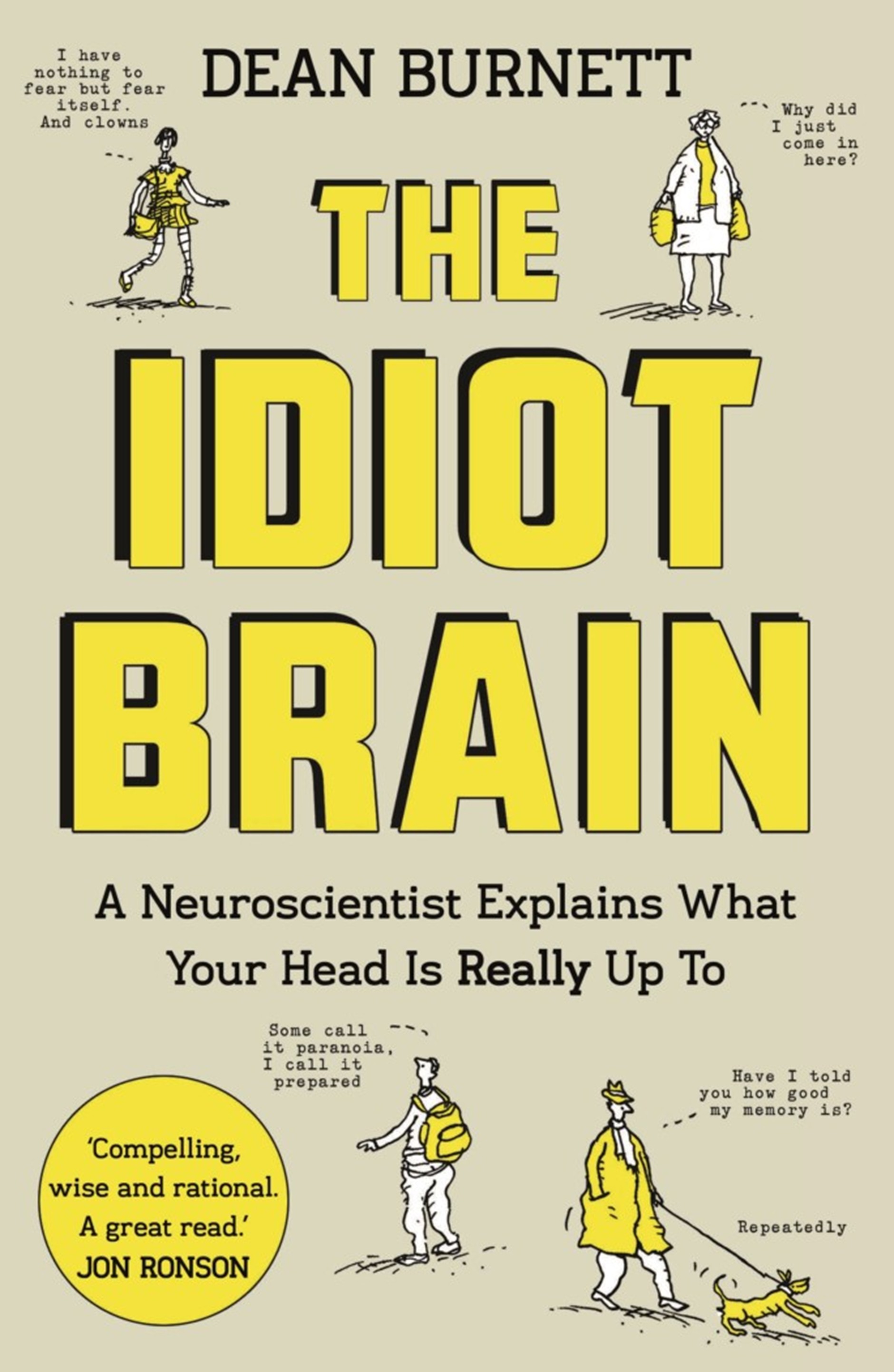
In his first book, published in 2016, Dean delivers a smart, funny, and accessible look at how our brains really work- not as perfect machines, but as messy, flawed, and fascinating systems. He unpacks topics such as memory, fear, intelligence, and decision-making in a way that’s both insightful and easy to grasp.
The Happy Brain: The Science of Where Happiness Comes From, and Why
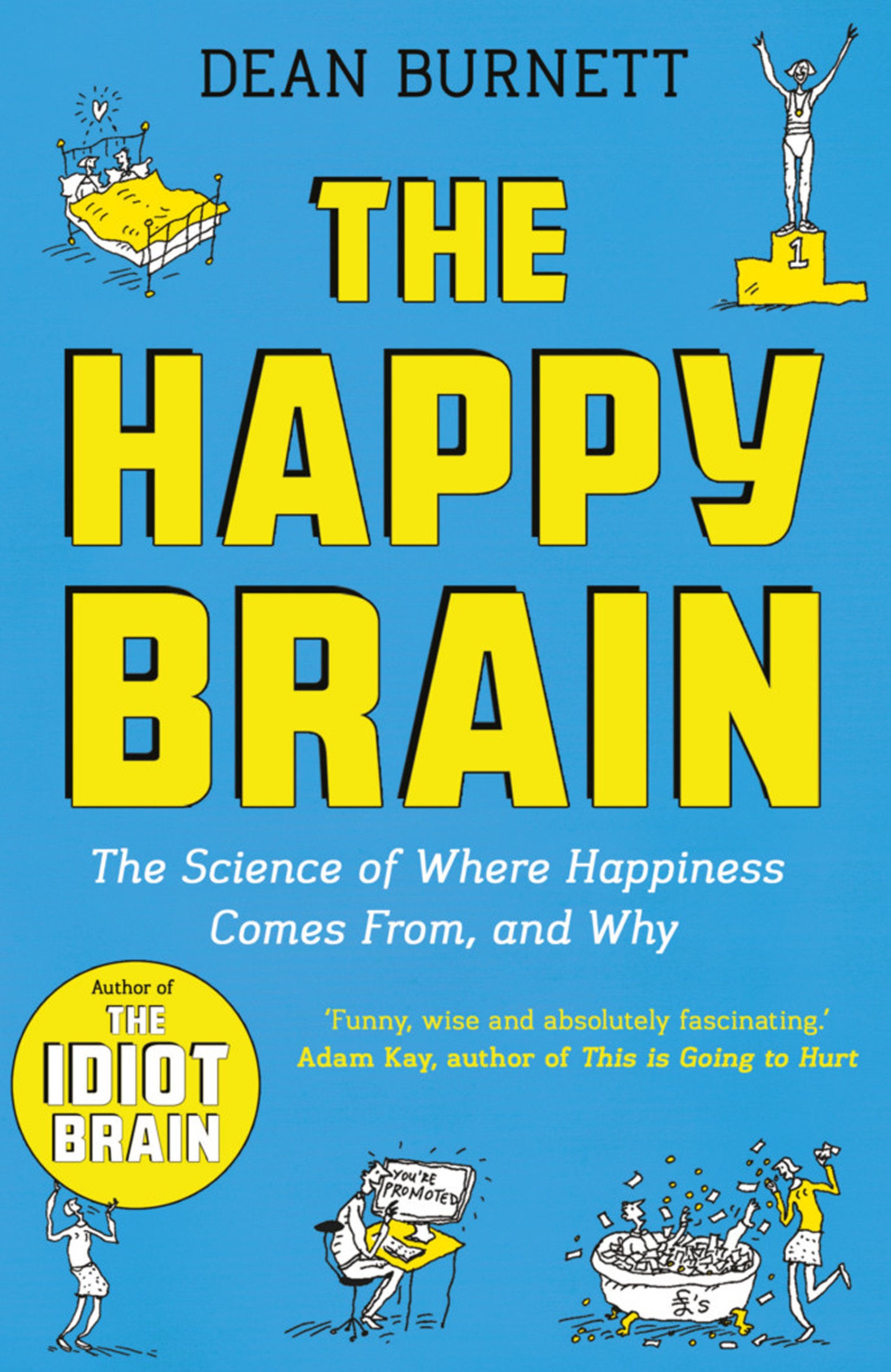
The Happy Brain (2018) explores the science behind what makes us happy. Dean examines a wide range of factors -from upbringing and relationships to money, fame, and brain chemistry - demonstrating just how complex and personal happiness can be. Informative and full of humour, this book is highly recommended for anyone wanting to learn more about emotions, mental health and human behaviour.
Psycho-Logical: Why Mental Health Goes Wrong – and How to Make Sense of It
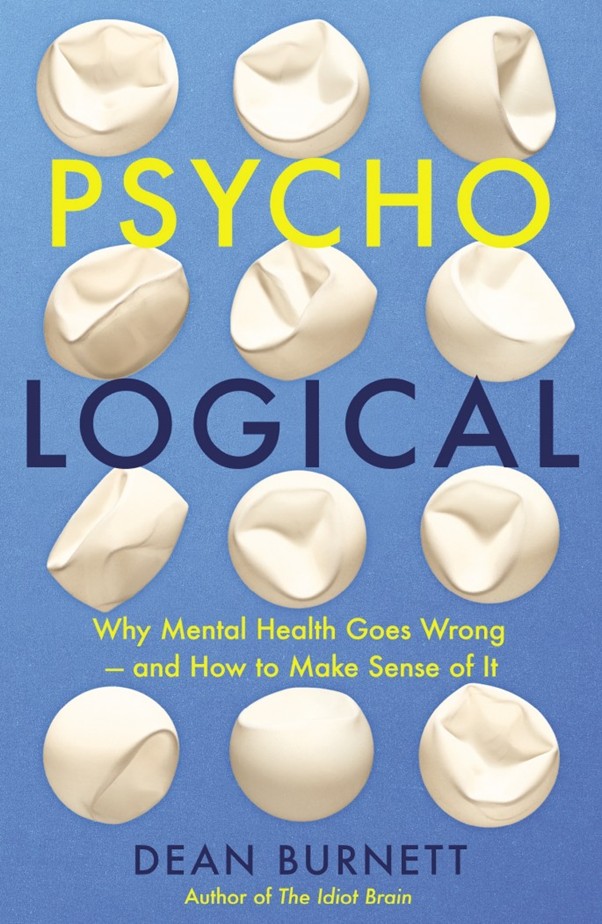
Dean’s third book, published in 2021, walks readers through how and why different mental health conditions develop, how brain function influences our emotions and behaviours, and why one-size-fits-all solutions rarely work. Throughout the book, Dean includes honest, first-hand accounts from people living with mental health conditions, grounding the science in real experience.
Emotional Ignorance: Lost and Found in the Science of Emotion
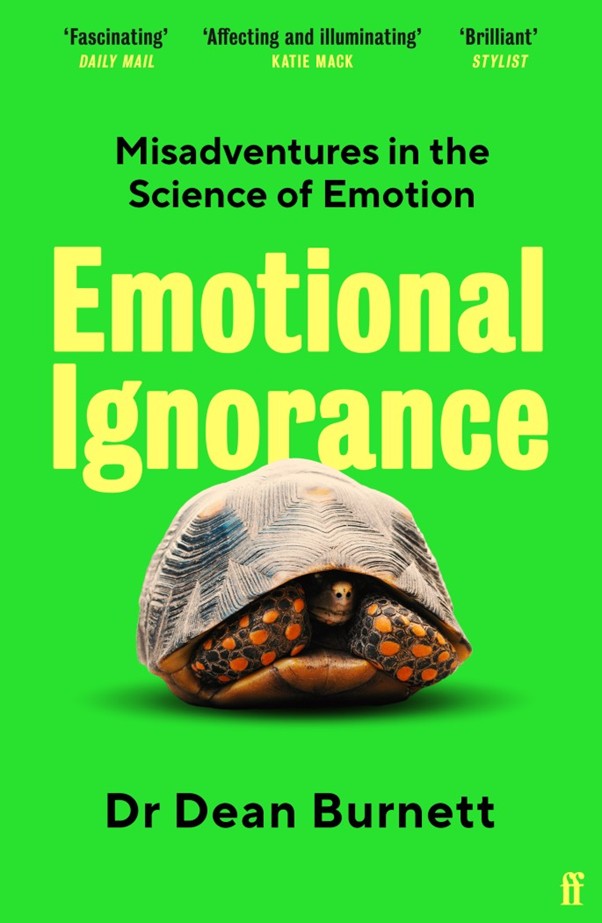
Written after the loss of his father during the COVID-19 pandemic, this book (published in 2023) was born out of profound personal loss. Combining scientific insight with personal vulnerability Emotional Ignorance considers the science of emotions. As well as providing powerful insights into the grieving process, Dean reveals whether things really were better in the old days, why doom scrolling is so addictive and how sad music can make us happier.
May 2025
Stepping into Senior Leadership: A guide for new and aspiring school leaders by Jon Tait
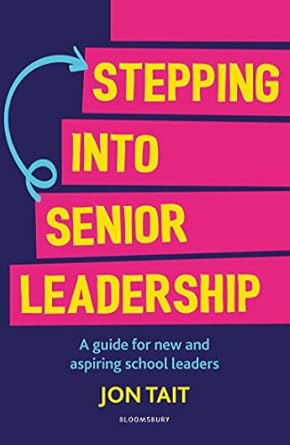
Whether you’re looking to refine your leadership skills or transition into a senior leadership role, Stepping into Senior Leadership is a must-read guide for educators at all stages of their career. Tait, a highly experienced and influential leader currently serving as Director of School Improvement and Deputy CEO at a multi-academy trust in North Yorkshire, brings a wealth of practical insights drawn from his extensive career in educational leadership.
The book is divided into four sections, covering a range of key topics for leaders and aspiring leaders in education: preparing for senior leadership, making the shift from middle management, leading teams, and supporting the development of others. Over 20 chapters, Tait simplifies complex leadership challenges and provides manageable, actionable advice, making it easy for educators to apply these lessons in their role.
Tait provides clear strategies for building strong connections with staff, including managing difficult conversations, maintaining accountability, and running effective meetings. He also offers actionable guidance for critical aspects of senior leadership, from creating a standout application and acing interviews to settling into a new role and establishing a vision for the future of the school. Tait encourages self-reflection throughout, offering tools to help teachers assess their personal leadership style. This book is a great resource for educators who aspire to take the next step in their leadership journey.
April 2025
The Trauma and Attachment-Aware Classroom: A Practical Guide to Supporting Children Who Have Encountered Trauma and Adverse Childhood Experiences by Rebecca Brooks
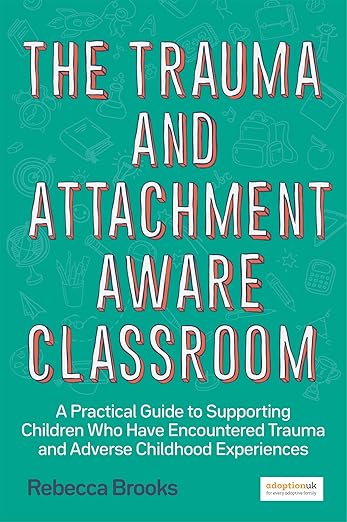 The Trauma and Attachment-Aware Classroom is an essential guide for educators looking to better understand and support children who have experienced trauma and attachment difficulties. Brooks draws on her background as a teacher, foster carer, adoptive parent, and Education Policy Advisor for Adoption UK, to offer an insightful perspective on how trauma affects children's ability to form connections and thrive in educational settings.
The Trauma and Attachment-Aware Classroom is an essential guide for educators looking to better understand and support children who have experienced trauma and attachment difficulties. Brooks draws on her background as a teacher, foster carer, adoptive parent, and Education Policy Advisor for Adoption UK, to offer an insightful perspective on how trauma affects children's ability to form connections and thrive in educational settings.
Using real-life examples from UK schools, Brooks provides guidance on how to adapt teaching strategies to better support these children, enhancing both their learning and well-being. She offers clear illustrations of how traditional school approaches can inadvertently affect children with trauma or attachment issues. The book also outlines alternative, trauma-sensitive, approaches that create more supportive classroom environments. Through this, she outlines a clear roadmap for positive transformation, encouraging meaningful change in schools.
Brooks provides key reminders of how early trauma can be displayed in a child’s behaviour, often becoming apparent in the classroom. She offers strategies for teachers to recognise and address triggers, helping children navigate their emotions and better cope with challenging situations. Therapeutic approaches such as PACE (Playfulness, Acceptance, Curiosity, and Empathy) and NVR (Non-Violent Resistance), are highlighted as practical tools to support the emotional and intellectual growth of children and young people. This book is a great resource for educators who want to create a nurturing environment for children affected by adverse childhood experiences.
March 2025
How to be an Outstanding Primary School Teacher by David Dunn
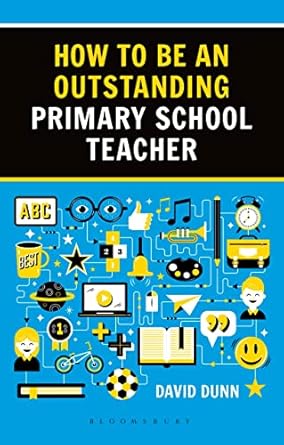 David Dunn, primary school head teacher in the west midlands, draws on his wealth of experience in the second edition of How to Be an Outstanding Primary School Teacher. With a background as an advanced skills teacher, and years of collaborating with educators and school leaders, Dunn offers valuable perspectives on what truly makes an exceptional classroom.
David Dunn, primary school head teacher in the west midlands, draws on his wealth of experience in the second edition of How to Be an Outstanding Primary School Teacher. With a background as an advanced skills teacher, and years of collaborating with educators and school leaders, Dunn offers valuable perspectives on what truly makes an exceptional classroom.
This updated edition is filled with practical, straightforward strategies designed to enhance lessons and improve everyday teaching practices. Dunn demonstrates how to make meaningful improvements without dedicating excessive time to lesson planning, preparation, or creating complex resources.
Drawing on his deep understanding of the challenges teachers face, Dunn covers essential areas including effective lesson planning, differentiation strategies, questioning, and assessment — each aimed at fostering student progress. This revised edition also reflects the latest shifts in educational policy and teaching practices, with content focused on integrating technology into the classroom. It includes a wide array of useful activities, lesson starters, plenaries, and online resources, all designed to enhance teaching while saving valuable time.
How to Be an Outstanding Primary School Teacher is a must-read for anyone looking to create a more engaging, effective, and rewarding classroom environment. With a focus on today’s educational realities, this book is an invaluable resource for modern educators seeking to make a lasting impact on their students’ learning experiences.
February 2025
Diverse Educators: A Manifesto by Bennie Kara and Hannah Wilson
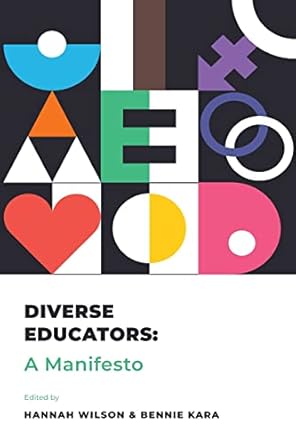 Diverse Educators: A Manifesto presents a compelling exploration of the challenges and opportunities surrounding diversity and inclusion in education. Grounded in the framework of the Equality Act 2010, the book serves as both a critique of systemic inequalities in the education system and a call for meaningful change. It also brings together over 100 educators, exploring the various identities, experiences, and backgrounds that intersect within the teaching profession.
Diverse Educators: A Manifesto presents a compelling exploration of the challenges and opportunities surrounding diversity and inclusion in education. Grounded in the framework of the Equality Act 2010, the book serves as both a critique of systemic inequalities in the education system and a call for meaningful change. It also brings together over 100 educators, exploring the various identities, experiences, and backgrounds that intersect within the teaching profession.
The book is organised into ten chapters, each dedicated to one of the nine protected characteristics under the Equality Act. The final chapter explores the critical concept of intersectionality, examining how multiple aspects of identity intersect to shape the lived experiences of educators. Through these chapters, Kara and Wilson provide a comprehensive examination of how these characteristics influence both the day-to-day lives of educators and the broader educational landscape.
The authors weave together theoretical insights with deeply personal stories, offering a dynamic blend of professional expertise and individual narratives. Each chapter not only highlights the lived experiences of diverse educators but also provides a robust analysis of the practical and pedagogical changes needed within the education system. These reflections invite readers to engage in thoughtful dialogue and consider actionable changes, all while emphasising tangible solutions to build a more inclusive and equitable educational environment. By offering a platform for voices in education, Diverse Educators: A Manifesto provides invaluable perspectives on how we can collectively dismantle barriers to inclusion. The contributors bring a wealth of experience and passion, confronting the challenges of discrimination, bias, and exclusion, and proposing ways to improve educational practices and policies.
The book’s practical approach and commitment to systemic change make it a vital resource for those who wish to make a meaningful difference in the lives of both students and educators. Diverse Educators: A Manifesto offers inspiration to all educators interested in inclusive and equitable practice, offering essential insights into the complexities of diversity and practical steps to address the challenges educators face.
January 2025
Narrowing the Attainment Gap by Daniel Sobel
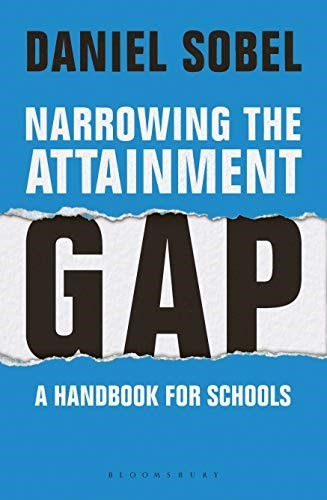 A significant gap exists in Wales between the educational performance of pupils eligible for free school meals (FSM) and their non-FSM peers. This gap has widened in recent years, exacerbated by the COVID-19 pandemic, which disproportionately impacted pupils from disadvantaged backgrounds, deepening pre-existing inequalities in education. Recognising the urgency of this issue, the Welsh Government has made raising attainment levels and closing the gap between the poorest children and their peers a key priority.
A significant gap exists in Wales between the educational performance of pupils eligible for free school meals (FSM) and their non-FSM peers. This gap has widened in recent years, exacerbated by the COVID-19 pandemic, which disproportionately impacted pupils from disadvantaged backgrounds, deepening pre-existing inequalities in education. Recognising the urgency of this issue, the Welsh Government has made raising attainment levels and closing the gap between the poorest children and their peers a key priority.
The Cabinet Secretary for Education, Lynne Neagle, has also highlighted the Welsh Government’s commitment to improving understanding of the attainment gap and where identifying interventions could be most effectively targeted to address this challenge.
Written by a leading expert in the field of inclusion, Narrowing the Attainment Gap explores the complex issues and barriers that contribute to the attainment gap, delivering a compelling and research-driven guide aimed at education professionals grappling with the persistent challenge of educational inequality.
Drawing on extensive research from working collaboratively with over 1,000 schools, the guide uses robust evidence to identify the various causes of the attainment gap and outlines the obstacles educators face in narrowing it. The book provides school leaders with innovative and actionable strategies, including case studies and template resources, helping them to develop bespoke solutions to meet the needs of the pupils in their settings. It further serves as an insightful analysis and a practical resource, inspiring educators to rethink their approaches and work collaboratively towards a more equitable educational landscape.
Suggesting a distinctive link between poor attainment and a lack of motivation, the author argues that raising aspirations is essential for fostering success. The guide also emphasises the crucial role of addressing students' emotional needs and advocates for a holistic approach to education, prioritising the aspirations and wellbeing of all pupils through a whole school approach.
November 2024
Mark. Plan. Teach. Save time. Reduce workload. Impact learning by Ross Morrison McGill
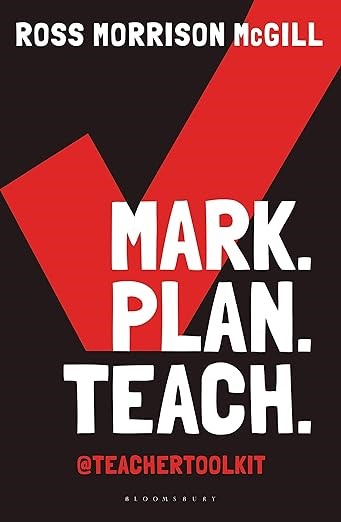
Adding to his collection of 11 other books specifically written as toolkits for educators, Ross Morrison McGill has over 30 years’ experience in teaching and educational leadership working with over 100,000 teachers across the world through his digital media platform @TeacherToolkit. This book suggests that effective teaching revolves around three essential components: marking, planning, and teaching, all of which should align with the teaching and assessment cycle ensuring productive use of time and resource. Mark. Plan. Teach. provides educators with comprehensive pedagogical strategies and practical insights aimed at enhancing their teaching practice and improving student learning outcomes. McGill offers actionable suggestions to boost the effectiveness and efficiency of each aspect, complemented by clear summaries of the research backing his recommendations.
Drawing from his experience as both a teacher and as an educational leader, McGill offers insightful approaches to reduce and manage workloads, enabling educators to maximise productivity and maintain control within the classroom. Using his wealth of experience and shrewd understanding of educational practice, the advice offered throughout the book is useful for both new and experienced practitioners.
Additionally, the book emphasises the importance of a healthy work/life balance and suggests that with confident, structured, and meaningful planning, this can be achieved regardless of the unexpected challenges that arise. This book presents practical and workable solutions to the problems that teachers face day-to-day, thereby enriching the quality of the learning provision.
October 2024
Kids in the Syndrome Mix of ADHD, LD, Autism Spectrum, Tourette's, Anxiety, and More! The One-stop Guide for Parents, Teachers, and Other Professionals by Dr Martin Kutscher
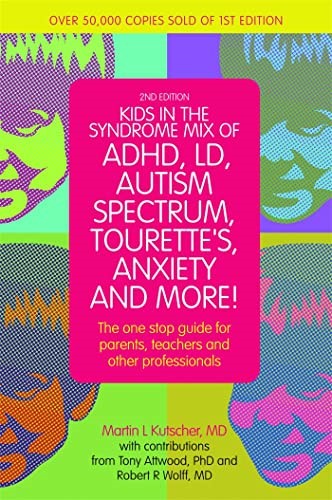
Written by the American paediatric neurologist Dr Martin Kutscher, this book provides a practical guide for educators (and other professionals) on the wide range of neurodiverse conditions in children and young people, with detailed chapters exploring the broad spectrum of neurodiversity.
There has been marked progress in terms of awareness of neurodiversity in recent years, and the support that neurodiverse learners and young people need. This is reflected through the introduction of the new Additional Learning Needs (ALN) system in Wales. However, despite an improved understanding of the strengths and the varied ways in which neurodivergent people process information and engage with the world, individuals with these conditions are still sometimes misunderstood and stereotyped and not encouraged to embrace their unique perspectives.
Kutscher and his co-authors address this through providing clear information on causes, symptoms, and treatments for the various neurodiverse conditions as well as sharing insightful and practical suggestions. Advice is also provided on effective behavioural strategies for educators, parents and professionals working with and responding to children and young people who display traits of these conditions.
The book promotes a broader understanding of the complexities of neurological conditions and places a strong emphasis on holistic approaches to managing behaviour and supporting mental health challenges, which recognise that each child and young person’s needs are unique and require individualised attention
Systematic review and meta-analysis: relative age in attention-deficit/hyperactivity disorder and autism spectrum disorder by Eleni Frisira, Josephine Holland & Kapil Sayal
Research led by the University of Nottingham, published in 2024, has found that the youngest children within a school year are more likely to be diagnosed with conditions such as Attention-Deficit Hyperactivity Disorder (ADHD) or Autism Spectrum Disorder (ASD). The researchers found that this was occurring as a result of teachers attributing signs of immaturity (associated with younger children being developmentally less mature than their older classmates with whom their behaviour is being compared) to these conditions. The research team noted that the findings highlight the importance of ensuring that teachers are properly trained and supported in understanding the broad spectrum of neurodivergency when assessing for and diagnosing conditions such as ADHD and ASD giving due consideration to the relative age of children within their settings. Read the full article from the journal of European Child and Adolescent Psychiatry.
September 2024
Emotion coaching with children and young people in schools: promoting positive behaviour, wellbeing and resilience by Louise Gilbert, Licette Gus, Janet Rose
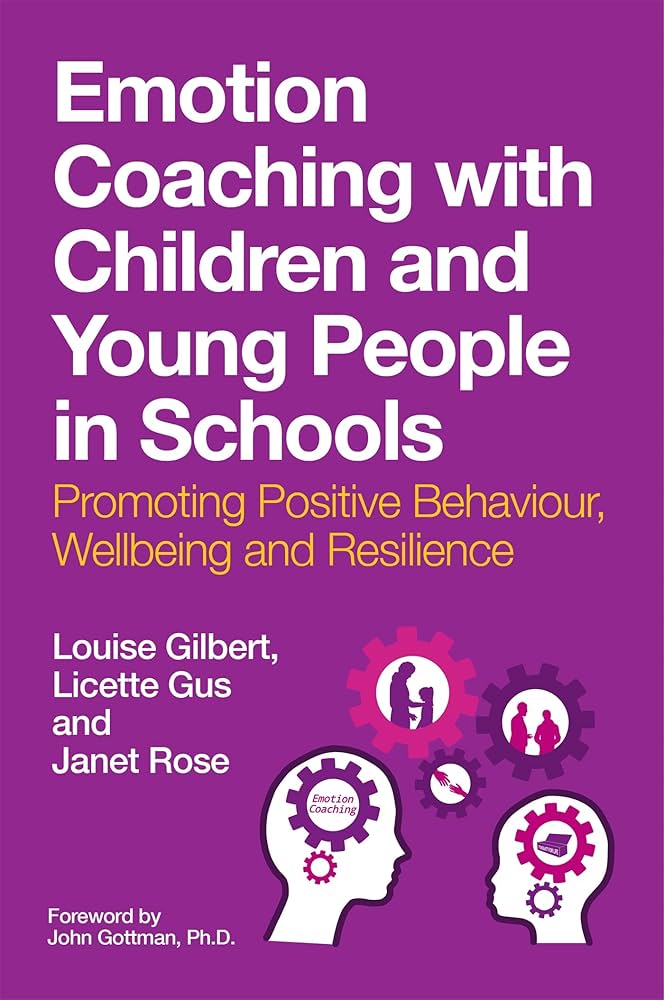
This book includes straightforward descriptions and practical tips, case studies and signposting to resources to apply emotional coaching in educational settings. It also supports educational professionals to promote empathetic responses to challenging behaviours and situations, helping children and young people to understand their emotions and learn to manage and regulate them and their behaviour in the longer-term.
Wellbeing in the primary classroom: Practical Guide to Teaching Happiness and Positive Mental Health by Adrian Bethune
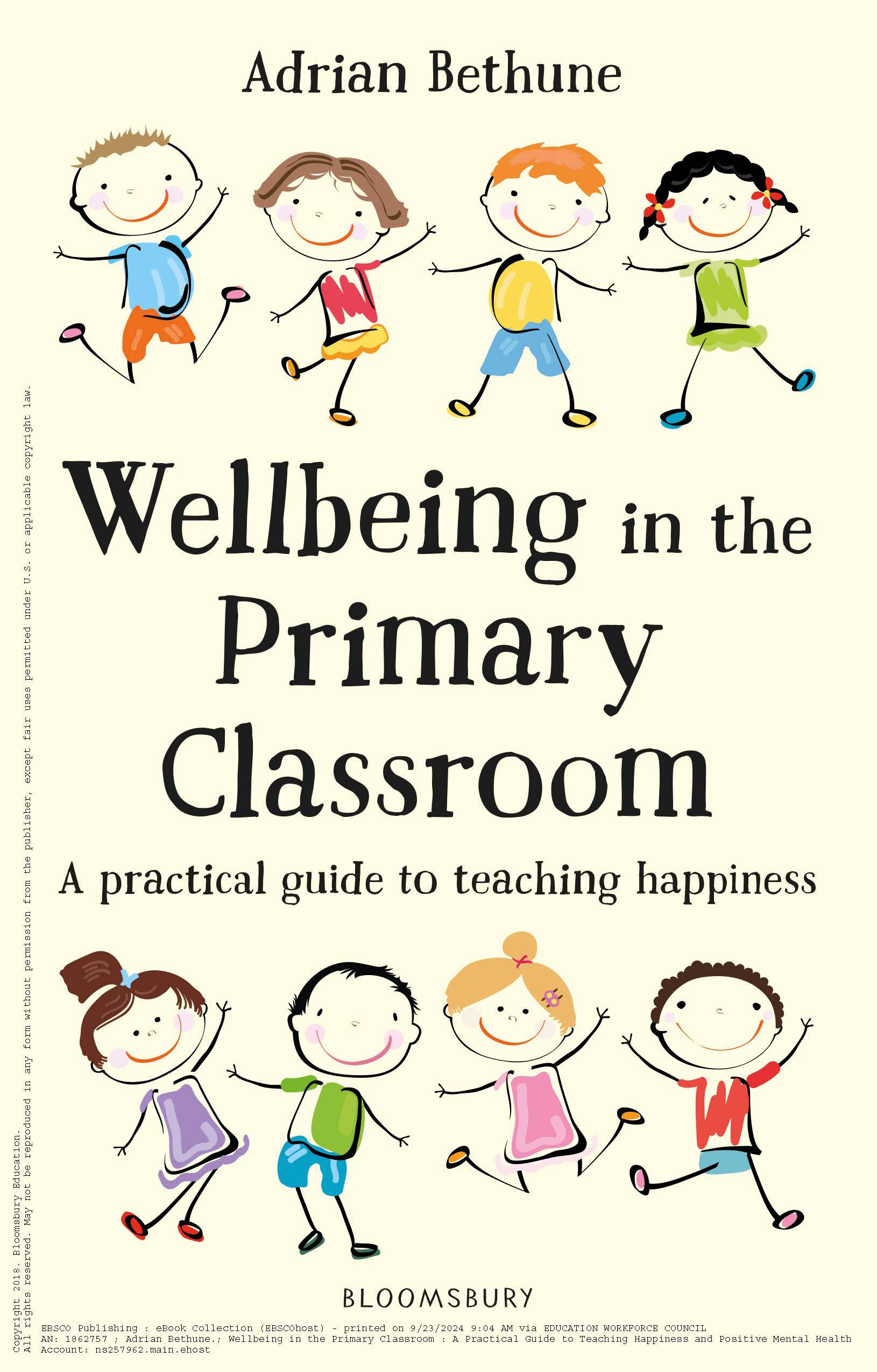
This book, written for primary schoolteachers by an experienced primary school teacher, looks at the latest evidence and research around the science of happiness and positive psychology. Full of tried-and-tested activities and techniques, including mindfulness, positive reflection, physical activity and acts of kindness, it is a helpful guide in supporting emotional and mental wellbeing in the primary classroom.
July 2024
How to survive in teaching: without imploding, exploding or walking away by Dr Emma Kell
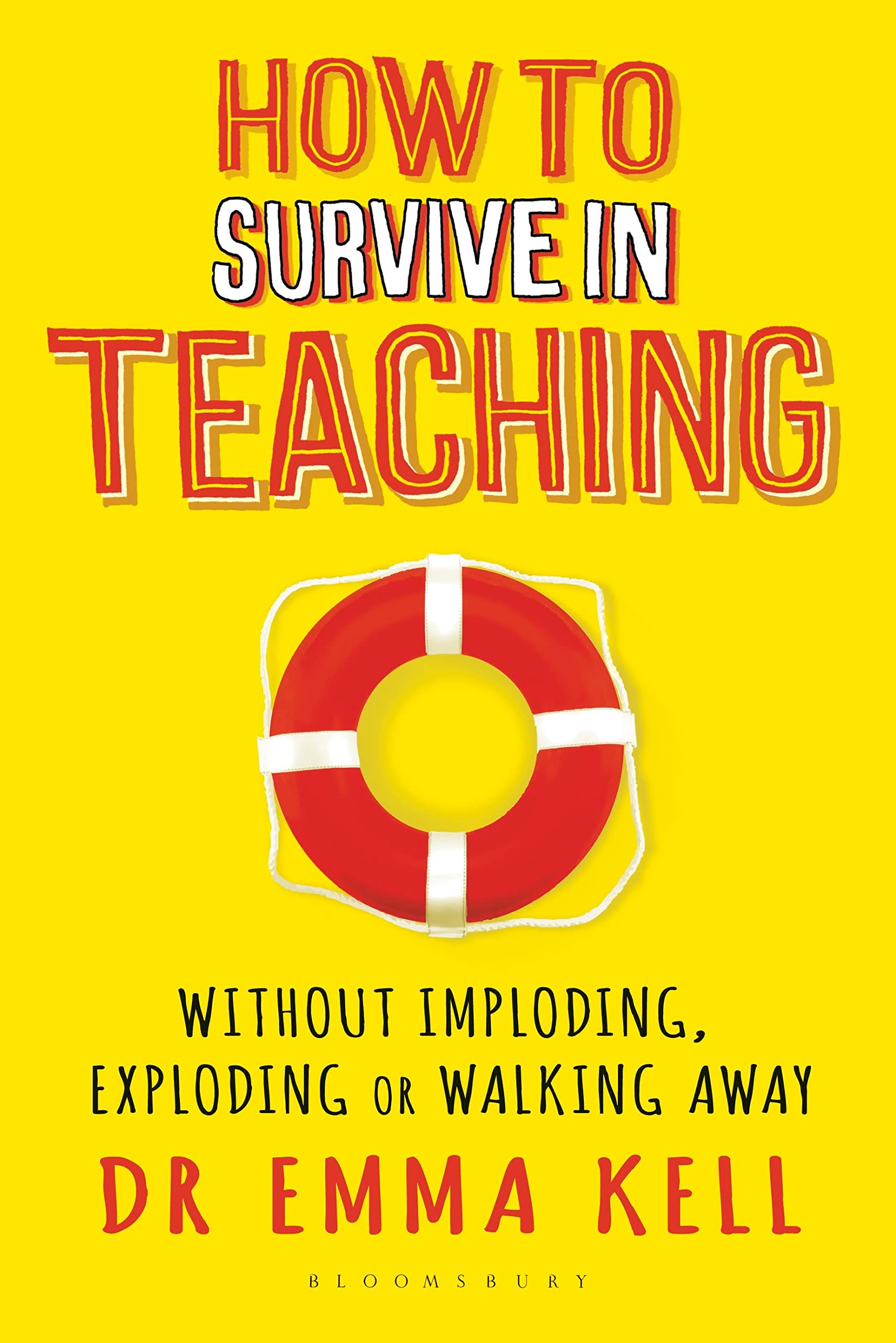
As an educational practitioner, you will be aware of the challenges concerning recruitment and retention within education. This book discusses varying perspectives on the challenges and rewards of teaching. It explores successful models and strategies where a combination of support and challenge, accountability, and a sense of being valued have encouraged teachers to enter and remain in the profession. The book reinforces the values held by educational professionals about why they chose a career in education including the fulfilment of working with learners supporting their progress and educational development, whilst also candidly addressing the numerous challenges faced by the workforce. The author draws on their own experience and that of their colleagues, having undertaken a significant amount of research including the evaluation of nearly 4,000 survey responses and interviews with teachers, former teachers and education professionals.
Slow teaching: on finding calm, clarity and impact in the classroom by Jamie Thom
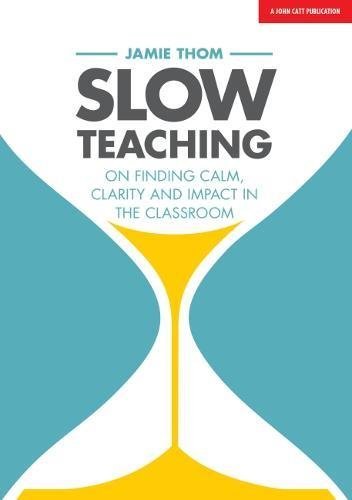
Slow Teaching is a thoughtful exploration of how slowing down in all aspects of education can lead to improved student outcomes. It explores how this method of reflective practice results in improved feedback, more nuanced and skilled classroom management and relationships, meaningful classroom dialogue and retention of knowledge and school leadership, and ultimately better learning. The ‘slow teaching’ technique aims to deepen the craft of teaching thereby growing expert practitioners who are committed to mastering their practice. The author organises the book into seven sections, all easy to read and drawing upon relevant, recent research and literature interwoven with personal experience. Reflecting on strategies that will enable teachers to feel calm, confident and organised, each chapter ends with several ‘slow’ questions to help the reader consider the content and how it applies to them and their situation.
June 2024
Focusing and Calming Games for Children: Mindfulness Strategies and Activities to Help Children to Relax, Concentrate and Take Control. By Deborah M. Plummer
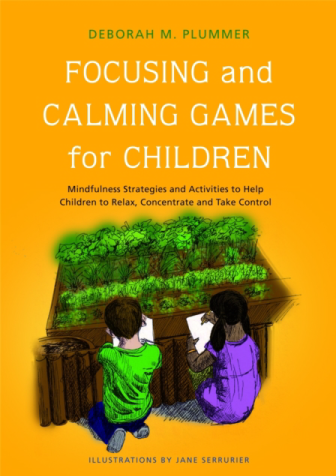 This engaging book offers a practical guide to incorporating mindful play into the classroom, promoting the wellbeing of children and young people by enhancing their awareness of both their inner and outer worlds. The first half of the book provides a theoretical and practical foundation for facilitating mindfulness through play. The latter half focuses more on icebreakers, games and activities.
This engaging book offers a practical guide to incorporating mindful play into the classroom, promoting the wellbeing of children and young people by enhancing their awareness of both their inner and outer worlds. The first half of the book provides a theoretical and practical foundation for facilitating mindfulness through play. The latter half focuses more on icebreakers, games and activities.
Ideas and concepts are presented with an open and adaptable approach, encouraging educators to mindfully integrate the games into their practice. The straightforward methodology and emphasis on play mean that the book is accessible for practitioners. The activities are particularly well suited to group settings, making the book an invaluable resource for those interested in fostering mindfulness amongst children and young people.
The Early Years Movement Handbook: A Principles-Based Approach to Supporting Young Children’s Physical Development, Health and Wellbeing. By Dr Lala Manners
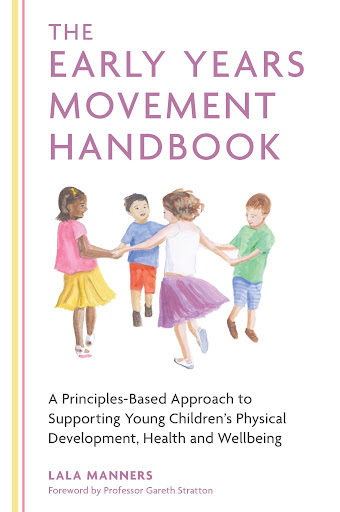 Movement is vital for early learners, and Dr. Manners thoroughly outlines its importance for physical development in a structured and accessible format. This book offers practical, straightforward advice for both experienced practitioners and students, blending theoretical perspectives with practical applications. Dr. Manners uses eight core principles to elucidate the central role of physical activity and play in shaping the development of children and young people. Throughout the book, readers will find practical frameworks, activities, ideas, and rationales that highlight the significance of movement. This handbook is an excellent resource for anyone interested in understanding the crucial role of physical activity in early childhood development.
Movement is vital for early learners, and Dr. Manners thoroughly outlines its importance for physical development in a structured and accessible format. This book offers practical, straightforward advice for both experienced practitioners and students, blending theoretical perspectives with practical applications. Dr. Manners uses eight core principles to elucidate the central role of physical activity and play in shaping the development of children and young people. Throughout the book, readers will find practical frameworks, activities, ideas, and rationales that highlight the significance of movement. This handbook is an excellent resource for anyone interested in understanding the crucial role of physical activity in early childhood development.
Previous editions
What did you think of this month’s recommendations? How did they help develop your practice? Tweet your response using #MeddwlMawr
Why not try using the tools in the PLP to reflect on the ideas from this month’s recommendations and how you can apply them to your own practice?
Have you been inspired by our recommendations, and want to share what you’ve learnt with your colleagues? Read our guide to setting up a journal club.
If you’re interested in evidence-informed practice, your Professional Learning Passport (PLP) gives you access to EBSCO, the world’s largest full-text research database for education professionals covering all levels of education and specialities.
EWC registrants have free access to the EBSCO Education Source package and the eBook Education collection. Both resources are constantly expanding and include:
- nearly 2,000 full-text journals
- abstracts for more than 3,500 journals
- more than 530 full-text books
- over 2,500 full-text and education related conference papers
- citations for more than 6 million articles, including book reviews
Make sure you sign up to our mailing list (Meddwl Mawr) to hear about recommendations as soon as they’re published.
It takes two simple steps to access EBSCO:
- Log in to your PLP. If you’ve not set up your PLP yet you can sign up via MyEWC
- Select the EBSCO tile of the dashboard
We have created a step-by-step video on how to log in to EBSCO, and how to use it, on our YouTube channel.
There’s also a series of online guides to support you in using EBSCO, including how to search for books and articles, and saving previously searched for articles.
Your space to reflect, share and shape your future
The Professional Learning Passport (PLP) is a flexible online e-portfolio available to all EWC registrants.
It is packed with features that are designed to support you in capturing, reflecting, sharing, and planning your learning. The ultimate aim – to help you shape your ongoing professional development and practice, no matter where you are on your professional learning journey.
Your PLP belongs to you, so what you create in, or upload to it is completely confidential. Your PLP is not linked to your employment, so as long as you are registered with us, you will have access to the content you have created.
Your PLP is available via your MyEWC online account. We’ve created a handy little guide to help you get set-up. If you need any help creating an account or using your PLP, please
We’ve also created a series of short videos to show you how other PLP users, and organisations, are using the PLP to support the recording of professional development.
Capturing your learning
Professional learning comes in many shapes and forms, from everyday learning experiences such as discussions with colleagues, to formal qualifications. Your PLP gives you a space to capture these experiences quickly and easily.
You may already have lots of information saved in different places and in different formats. You can add all of this quickly and easily to your PLP either by using the upload tool, or using the Pebblepocket app. This short video shows how easy it is to use the app to capture your experiences and reflect upon them.
If you have files already saved in Google Drive or Dropbox, you can connect your PLP to those accounts.
Reflecting on your learning
Reflecting on your experiences helps to shape your future learning, development, and practice. Why not use one of our structured templates to guide and support you as you record and reflect on your learning. Upload your thoughts in audio or video, or get creative and use the PLP's template builder to create the document that suits your needs. Portfolios are a great way to present your professional learning and yourself, as shown in this short video.
Your PLP allows you to share your experiences with others, work collaboratively, and can support the performance review process. When sharing your PLP with others, you have full control over which parts of your PLP they can view, and for how long.
Engaging with your professional standards
Your PLP can support you in engaging with your professional standards. You can take any item which you have created or added to your PLP and map this to the relevant professional standards.
Anything you map to the standards will appear summarised in your standards workbook which is available on the dashboard of your PLP. When mapping evidence against the standards, you can complete a self-assessment of your progress, against that standard, using the slider bar option. The standards overview page will then give you a visual representation of your progress and can support you in identifying your areas of strength and development.
Shaping the future
The flexibility of the PLP allows individuals to record their own professional learning journey whilst also supporting the process at an organisational level.
We can work with your organisation to develop bespoke bilingual templates for your staff to record their professional learning and development. These can be used to support professional review processes, whole school projects, or cross cluster activities. There is no charge or contract fees, and the team are available to provide free ongoing bilingual support. If your organisation is interested in working with us,
Our short videos show how organisations are already using the PLP to support the recording of professional development
Research library
If you’re interested in evidence-informed practice, your PLP gives you access to EBSCO, the world’s largest full-text research database for education professionals covering all levels of education and specialities. You can even sign up to receive monthly recommendations to EBSCO content by subscribing to Meddwl Mawr, our monthly book and journal club.
Interested? Book your free demonstration
We are happy to visit your organisation to give your staff a demonstration of the PLP and showcase how its functionality and versatility can benefit you, your colleagues, and organisation. If you would like to book a free demonstration, please complete our online booking form or
